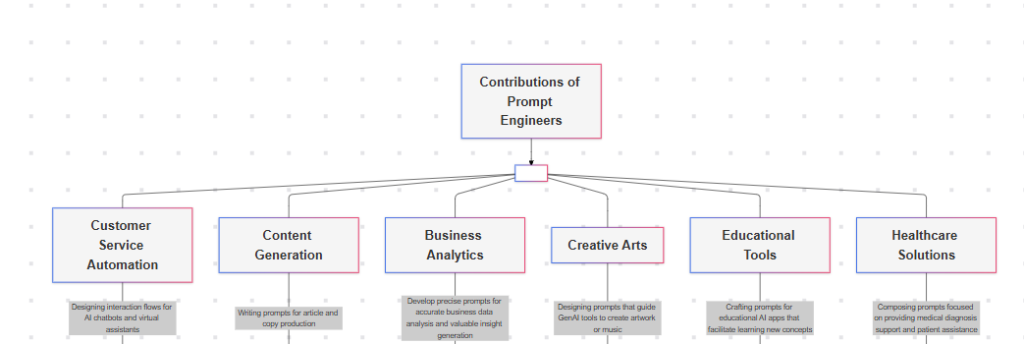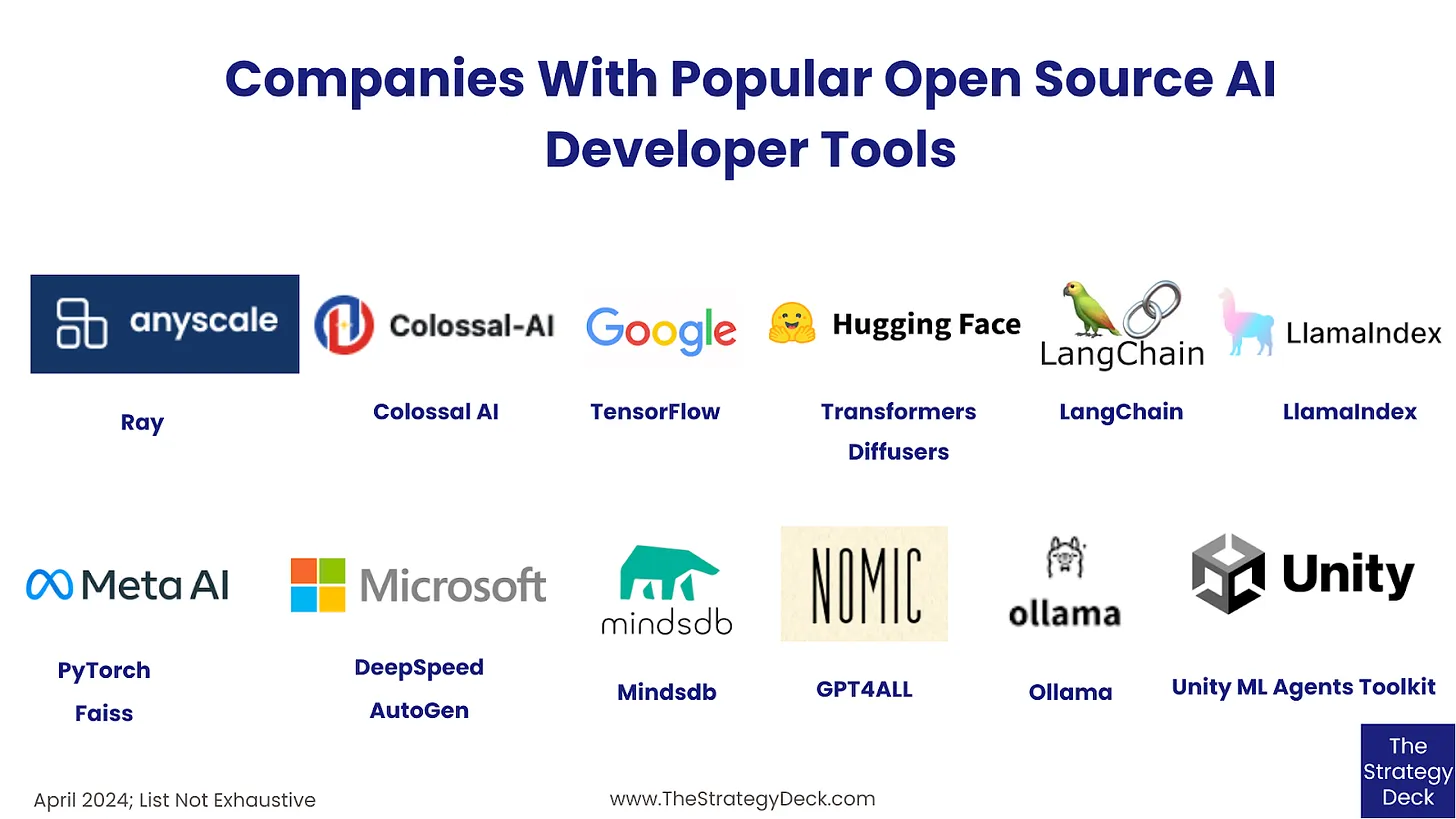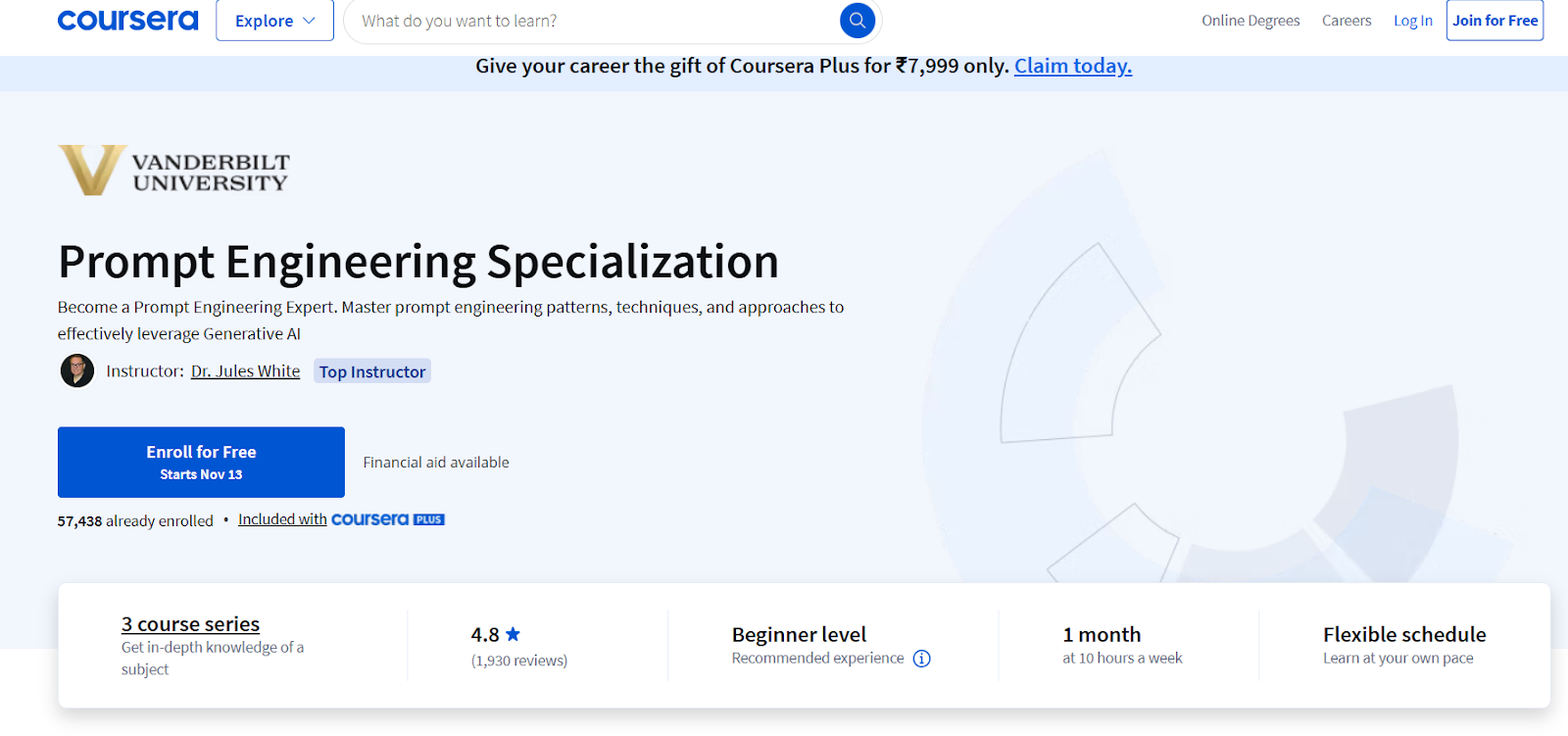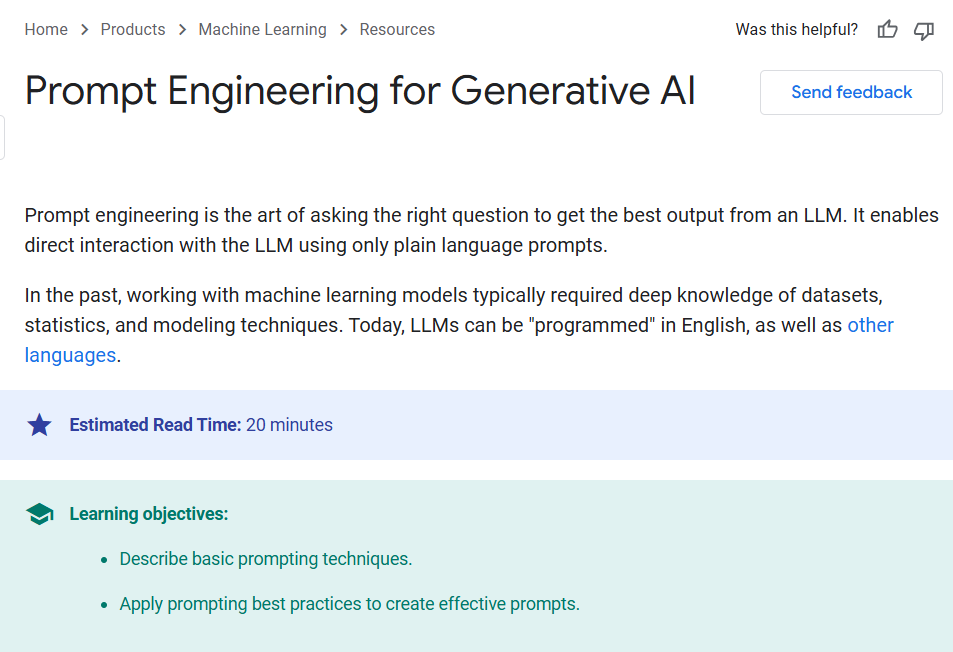To become an AI prompt engineer, you need to learn the fundamentals of machine learning (ML) and natural language processing (NLP). You have to practice designing prompts that guide AI models to produce desired outputs. Stay updated on AI advancements and experiment with different prompt techniques.
Are you curious about how AI systems generate those spot-on responses?
As AI reshapes industries worldwide, the role of an AI prompt engineer is emerging as a game-changer. According to a report by the International Data Corporation (IDC), artificial intelligence (AI) adoption in India is projected to grow at a compound annual growth rate (CAGR) of 33.7% from 2022 to 2027, with spending expected to reach $6 billion by 2027.
Prompt engineers are now essential in refining the interaction between AI and users, enabling smoother, more intuitive AI experiences across sectors like healthcare, e-commerce, and tech. This guide dives into everything you need to start in this role: the must-have skills, learning paths, and real-world training tips.
Ready to explore an exciting career that combines innovation and creativity? Read on to find out how you can step into the world of AI prompt engineering.
Who is an AI Prompt Engineer?
An AI prompt engineer is a professional who specializes in creating effective prompts or commands for artificial intelligence systems. These prompts guide the AI in producing responses that align with specific tasks or questions, making it critical for applications like customer support, content creation, virtual assistance, and more. As an AI prompt engineer, your job is to ensure that the AI provides accurate and helpful information by understanding how different prompts impact the system’s output.
This role goes beyond basic interactions; it requires understanding AI behavior, anticipating potential misinterpretations, and crafting instructions that produce optimal results. In short, AI prompt engineers are responsible for bridging the gap between complex AI algorithms and user-friendly applications.

Key Skills Needed to Become an AI Prompt Engineer
To succeed in prompt engineering, you’ll need a combination of technical and creative skills. Here’s a detailed look at the essential skills:
- Understanding of AI and NLP: A solid foundation in artificial intelligence and natural language processing (NLP) is crucial. These areas influence how AI models interpret and respond to prompts. Familiarity with NLP concepts like tokenization, sentiment analysis, language modeling, and text generation can greatly enhance your prompt design.
- Prompt Design and Testing: Prompt engineers must know how to design prompts that effectively guide AI models. This involves experimenting with different instructions, tweaking phrasing, and analyzing the AI’s responses. Well-designed prompts save time, improve user satisfaction, and minimize errors. For practical insights, consider reviewing examples of prompt engineering to see these principles in action.
- Analytical Thinking: Strong analytical skills help you evaluate how AI interprets commands and identify adjustments for optimal output. When the AI produces unexpected results, analytical thinking is key to troubleshooting and refining prompts.
- Basic Programming Knowledge: While prompt engineering doesn’t require extensive coding, basic programming skills are beneficial. Familiarity with Python or JavaScript helps integrate prompts into AI applications and modify code when necessary.
- Creativity and Problem-Solving: Crafting effective prompts often requires a creative approach. Thinking outside the box helps you get the AI to respond in specific ways, especially for complex or nuanced tasks.
- Adaptability and Curiosity: The AI field evolves rapidly. Staying curious, adaptable, and open to learning new techniques helps you keep pace with advancements and improve prompt engineering skills over time.
- Attention to Detail: Small changes in wording can significantly affect AI outputs. Attention to detail ensures you’re able to catch these nuances and adjust prompts to achieve the desired accuracy and relevance.
- Communication Skills: As a prompt engineer, you may need to explain your work to non-technical team members or clients. Clear communication skills make it easier to describe how prompts work, why specific designs are chosen, and what results to expect.
- Understanding of Human Psychology and Language Patterns: Knowing how humans communicate and how language is typically structured helps you create prompts that feel natural to users. Understanding conversational cues, context, and intent makes it easier to design prompts that yield useful and user-friendly responses.
- Experimentation Mindset Effective prompt engineering is often an iterative process, requiring you to test, measure, and tweak designs repeatedly. An experimentation mindset allows you to approach each new task as a chance to explore and refine, leading to better outcomes over time.
Educational Path to Becoming an AI Prompt Engineer
Starting a career as an AI prompt engineer requires both foundational knowledge of AI and hands-on experience with prompt design. In this section, we’ll cover the steps you can take, from basic courses to advanced practice techniques.
Use the below tips to equip yourself with the skills and confidence needed to succeed. If you’re ready to dive into this field, here’s how to get started:
1. Building a Foundation in AI and NLP
- Start with beginner courses in AI, machine learning, and NLP. Free resources like Coursera, edX, and even YouTube tutorials can introduce you to key concepts.
- Aim for a solid understanding of language models, as these form the basis of many AI systems. Studying models like GPT (by OpenAI) or Google’s BERT can provide valuable insights into how AI processes language.
2. Specialized Courses in Prompt Engineering
- Some platforms are now offering specific courses on prompt engineering. While these may be rare, they are an excellent investment if available. Look for courses that emphasize practical application, covering prompt crafting, testing, and refinement techniques.
3. Hands-On Practice with AI Tools
- Working directly with AI platforms is one of the best ways to develop prompt engineering skills. OpenAI’s Playground, Hugging Face’s transformer library, and Google’s T5 offer hands-on experiences with AI models, where you can experiment and see real-time results.
- Start with simple prompts and gradually test more complex ones, noting how minor wording changes affect output.
4. Learning Through Communities and Projects
- AI communities, like those on Reddit, GitHub, and specialized forums, are valuable for gaining insights and feedback. Engaging in collaborative projects can expose you to diverse perspectives and challenge you to improve.
Hands-On Training and Gaining Experience
Practical experience is the key to becoming a skilled AI prompt engineer. Real-world practice helps you understand how AI models respond to different prompts and refine your techniques. Here’s how you can dive in and start building your expertise
Experimenting with Open-Source AI Models
- Many open-source platforms allow you to test and refine your prompts without significant financial investment. Hugging Face and OpenAI offer interactive platforms where you can work with various models, test prompt effectiveness, and refine your skills.

Participating in AI Competitions
- Platforms like Kaggle often host NLP challenges. These competitions are great for testing your prompt engineering skills in real-world scenarios, building your portfolio, and networking with other AI professionals.
Creating a Personal Prompt Portfolio
- Document your prompt experiments and results to create a portfolio. Highlight specific challenges, the prompts used, and the outcomes. This can be a valuable asset when applying for jobs or showcasing your skills to potential clients.
Seeking Internships or Junior Roles
- Many companies are now exploring AI-driven customer service or content solutions. Interning in such settings can give you practical experience and a foot in the door, even if the role isn’t explicitly titled “prompt engineer.”
Certifications and Courses to Improve Credibility
Obtaining certifications can demonstrate your commitment to the field and improve your resume. Here are some recommended certifications:
- Generative AI: Prompt Engineering Basics: Offered by IBM on Coursera, this course introduces prompt engineering techniques to effectively guide generative AI models. It covers best practices for writing prompts and explores tools used in the field. Coursera
- Prompt Engineering Specialization: Available on Coursera, this specialization focuses on augmenting human creativity and critical thinking with generative AI. It provides hands-on experience in leveraging large language models to automate tasks and enhance productivity. Coursera

- The Complete Prompt Engineering for AI Bootcamp (2024): Hosted on Udemy, this comprehensive course covers prompt engineering for various AI tools, including ChatGPT, GPT-4, Midjourney, and DALL-E. It emphasizes practical applications and advanced techniques. Udemy
- Prompt Engineering and Generative AI Path: Offered by Pluralsight, this learning path includes courses designed to master prompt engineering and harness the capabilities of generative models like GPT-3 and GPT-4. It caters to individuals, developers, and data scientists. Pluralsight
- Introduction to Prompt Engineering: Provided by IBM on edX, this course teaches techniques and best practices for writing effective prompts to unlock the full potential of generative AI tools like ChatGPT. edX
- Prompt Engineering for Generative AI: Google Developers offers resources on prompt engineering, focusing on crafting effective prompts to get the best output from large language models. It provides insights into direct interaction with LLMs using plain language prompts. Google Developers

Many certification programs provide hands-on projects, allowing you to apply what you’ve learned directly. This practical experience can be beneficial for entry-level prompt engineers.
Career Opportunities and Growth
The demand for AI prompt engineers is growing across sectors like tech, healthcare, finance, and customer support. Here’s a closer look at what to expect:
- Industries Hiring AI Prompt Engineers
- Tech and Software Development: AI companies, including giants like Google and Microsoft, are investing in prompt engineering to refine AI-based applications.
- Healthcare: With AI chatbots assisting in patient care, prompt engineers help ensure accurate medical information.
- E-commerce and Customer Service: AI-driven customer support tools rely on well-crafted prompts to handle customer queries efficiently.
- Job Titles and Career Path
- Entry-level positions might be labeled as AI Assistants, NLP Specialists, or Junior Prompt Engineers. With experience, you could move into roles like Senior Prompt Engineer, AI Trainer, or even Product Manager for AI products.
- Expected Salary and Market Demand
- According to Glassdoor, the average annual salary for an AI Prompt Engineer in India is approximately ₹8,09,500. In the United States, Glassdoor reports an average annual salary of $112,626 for AI Prompt Engineers. These figures can vary based on factors such as experience, location, and the employing organization.
Wrapping Up
Becoming an AI prompt engineer offers a unique opportunity to combine technical expertise with creative problem-solving. As AI becomes more integrated into daily life, prompt engineers will play a critical role in refining and humanizing these systems.
By mastering prompt engineering skills, practicing with real-world AI tools, and building a portfolio, you can make yourself a valuable asset in the evolving AI landscape. This role not only offers competitive salaries but also a chance to impact AI technology in meaningful ways.
Got questions? We’ve got you covered
What background is needed to become an AI prompt engineer?
A background in AI, machine learning, or NLP is beneficial, though beginners can start with online courses.
Do AI prompt engineers need programming skills?
Basic programming knowledge, especially in Python, is useful but not always mandatory. It helps refine prompts and work with AI tools effectively.
Are there specific tools for practicing AI prompt engineering?
Yes, tools like OpenAI’s Playground, Hugging Face’s transformers, and Google’s T5 are popular for experimenting with prompts.
What industries are hiring AI prompt engineers?
Industries like e-commerce, healthcare, and customer service seek prompt engineers to enhance AI-based applications.
How long does it take to become a skilled AI prompt engineer?
The timeline varies, but with consistent learning and practice, proficiency can be achieved in 6-12 months.